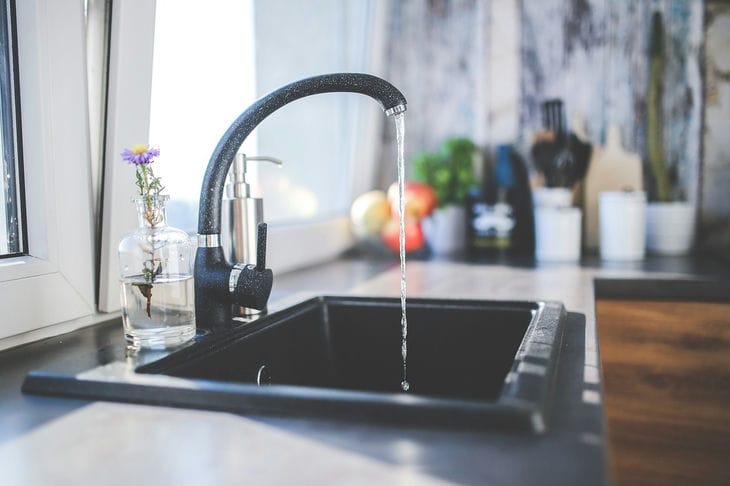What you shouldn't clean a black faucet with: one mistake and the plumbing will have to be replaced
It's safe to say that the black faucet trend has split the world, twice.
At first, people were divided into admirers of dramatic contrast and its ill-wishers, and then the first half split into the disappointed and those who were fine with cleanliness.
Let's figure out why some "users" have black faucets that are practically in their original form even after several years, while others have plumbing that looks like "seasoned" vintage after a day.
Firstly, the main problem for plumbing is water hardness. It can leave marks on any surface, and white stains are especially noticeable on black plumbing.
If you know you have hard water but black plumbing fixtures are still on your wish list, install a water softener filter.

Secondly, the problem may be hidden in insufficient maintenance. It is necessary to understand that a black faucet requires more attention and responsibility from its owners. If you have problems with these qualities, it is better not to get involved with the fashion trend.
And thirdly, improper care can have a significant impact on the appearance of the faucet. Black faucets are rather capricious devices; they do not tolerate chemicals or even a hint of abrasives. Here is a list of prohibited care products for black faucets:
- Hard and coarse brushes, washcloths and sponges.
- Chemical based cleaning products.
- Products containing ammonia.
- Astringents.
- Organic solvents.
- Bleaches and other chlorine-based products.
- Abrasive powders (including baking soda).
- Polishes and waxes.
- Products containing acid (including lemon and vinegar).
Earlier we told you how to clean a faucet from limescale in just 15 minutes.
